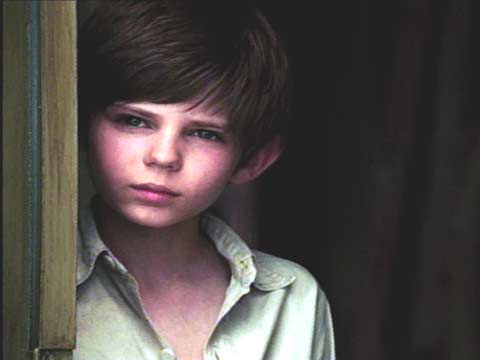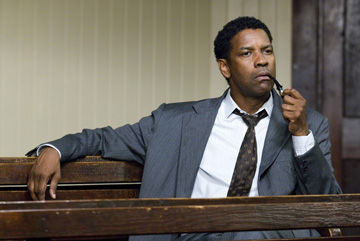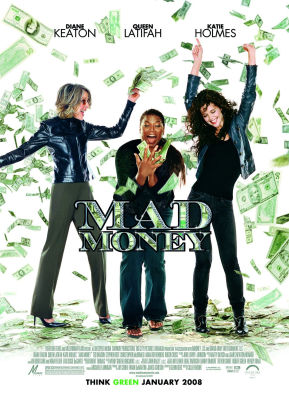The fist Pangea Day was every bit as heart-warming, inspiring, and thrilling as I had hoped. I was privileged to participate at the Epicenter Church, a new Christian Faith Community located in Rosslyn, Virginia, just across the Potomac River from Washington DC. Pastor Paul Nixon and worship leader Ward Ferguson gave us a very warm welcome. We were a very small group, only nine of us, but through the huge screen we felt very much a part of the thousands world-wide who came together around the modern-day equivalent of a campfire to share our stories.
Pangea Day was like a cross between Live Aid, Woodstock, Oprah, and the Disney park ride “It’s a Small World After All.” It was the dream of film-maker Jehane Noujaim to bring people around the world together by allowing them to share their stories via film. Anthropologist Donald Brown spoke about his inventory of “human universals,” the things that connect all people in all cultures, from rituals and customs around meals, gift-giving, and life cycle events to sharing, insults, and the expression of feelings like mourning, competition, love — even tickling. There were live appearances, musical performances, and interviews, some a little awkward, cheesy, or glitchy, but all well-intentioned, and the four-hour presentation centered on the sharing of stories from film-makers around the world.
Each of the films is only a few minutes long and all are well worth watching. One of my favorites was “The Ball,” the first film shown, from Mozambique, about boys in need of a soccer ball. The funniest included “The Slap” and “Elevator Music,” but the one that provoked the biggest reaction from our group was “Laughter Club,” a mini-documentary about groups around the world who meet just to practice Laughter Yoga. The most poignant and moving films included “Dancing Queen” from India and brief segments from “Operation Homecoming,” with commentary from an American soldier serving in Iraq and Noujaim’s Combatants for Peace, with former soldiers from Israel and Palestine who are working together to find reconciliation and peace.
The most romantic included the wordless “A Thousand Words” and “Mutual Recognition,” an excerpt from Noujaim’s own film that includes an interview with a Sufi couple about what makes their marriage strong. Their message — through words and through their expressions as they look at and listen to one another — is deeply inspiring. Perhaps the film that best summed up the day’s message was “Wallyball,” a mini-documentary about a wall dividing a beach along the U.S./Mexican border. As helicopters and soldiers maintain national security by keeping these neighbors apart, the people enjoying their time on the beach develop a volleyball game across the divider. Be sure to watch for the ice cream truck. It reminds me of one of my very favorite short animated films, “The Hat,” by John and Faith Hubley.
Many of the stories affirmed the universality and connection of human experience. Topics like anger, love, and hope were addressed with brief comments by people all over the world. Some of the stories were about experiences so devastating most of us are unable even to begin to contemplate the devastation and trauma they inflict. Ishmael Beah
spoke of his two years as child soldier in Sierra Leone and his struggle to recover his humanity and transcend the experience, to “learn to transform the war experiences to they were no longer a burden but instructional tools.” Israeli Robi Damelin
and Palestinian Ali Abu Awwad held hands as they came on stage to talk about how the killing of their family members led them to forgive and seek forgiveness and to work for reconciliation and peace.
In a live interview with the former soldiers who appeared in the “Combatants for Peace” film, the Israeli veteran revealed that hours before his mother and brother were shot in a peace demonstration, a powerful reminder that there are daunting challenges ahead. But his appearance, even after that incident, with his new friend and former enemy was an even more powerful reminder that while it may be a long and difficult journey, we have taken the first steps.
Please take a moment to watch some of the films. And make some of your own to keep this conversation going.
 In this impressionistic, rose-and honey-toned memory piece, young Jacob hides from the Nazis in 1941 Poland but his parents are killed and his sister is captured. The terrified boy is discovered by a Greek archaeologist, who takes him in and becomes a gentle, devoted surrogate father. Over the years, Jacob (played as an adult by Stephen Dillane) tries to make sense of his past and his present.
In this impressionistic, rose-and honey-toned memory piece, young Jacob hides from the Nazis in 1941 Poland but his parents are killed and his sister is captured. The terrified boy is discovered by a Greek archaeologist, who takes him in and becomes a gentle, devoted surrogate father. Over the years, Jacob (played as an adult by Stephen Dillane) tries to make sense of his past and his present.
 In 1935, the debate team from a tiny all-black college took on the top white team in the country and they won. This is that story, Oprah-fied to be sure (Winfrey’s company produced the film), but powerfully told by director Denzel Washington, who also stars as the team’s coach, distinguished poet
In 1935, the debate team from a tiny all-black college took on the top white team in the country and they won. This is that story, Oprah-fied to be sure (Winfrey’s company produced the film), but powerfully told by director Denzel Washington, who also stars as the team’s coach, distinguished poet 